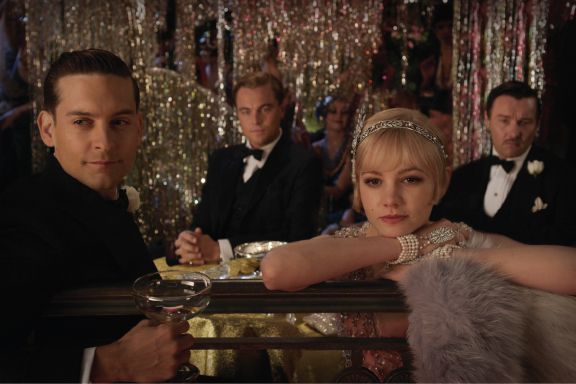Influences of Television and Film
There are two major facets in the relationship among books, television, and film: how TV can help sell books and how books serve as ideas for TV shows and movies. Through TV exposure, books by or about talk-show hosts, actors, and politicians such as Stephen Colbert, Julie Andrews, Barack Obama, and Hillary Clinton sell millions of copies—enormous sales in a business where 100,000 in sales constitutes remarkable success. In national polls conducted from the 1980s through today, nearly 30 percent of respondents said they had read a book after seeing the story or a promotion on television.

One of the most influential forces in promoting books on TV was Oprah Winfrey. Even before the development of Oprah’s Book Club in 1996, Oprah’s afternoon talk show had become a major power broker in selling books. In 1993, for example, Holocaust survivor and Nobel Prize recipient Elie Wiesel appeared on Oprah. Afterward, his 1960 memoir, Night, which had been issued as a Bantam paperback in 1982, returned to the best-seller lists. In 1996, novelist Toni Morrison’s nineteen-year-old book Song of Solomon became a paperback best-seller after Morrison appeared on Oprah. In 1998, after Winfrey brought Morrison’s Beloved to movie screens, the book version was back on the best-seller lists. Each Oprah’s Book Club selection became an immediate best-seller, generating tremendous excitement within the book industry. The Oprah Winfrey Show ended in 2011.
The film industry gets many of its story ideas from books, which results in enormous movie rights revenues for the book industry and its authors. Nicholas Sparks’s The Lucky One (2008), Yann Martel’s Life of Pi (2001), and J. R. R. Tolkien’s The Hobbit (1937), for instance, became highly successful motion pictures in 2012. The most profitable movie successes for the book industry in recent years emerged from fantasy works. J. K. Rowling’s best-selling Harry Potter books have become hugely popular movies, as has Peter Jackson’s film trilogy of J. R. R. Tolkien’s enduringly popular The Lord of the Rings (first published in the 1950s). The Twilight movie series has created a huge surge in sales of Stephanie Meyer’s four-book saga, a success repeated by Suzanne Collins’s The Hunger Games, which had the second movie in a planned series of four released in 2013. Books have also inspired popular television programs, including Game of Thrones and Boardwalk Empire on HBO, Dexter on Showtime, and Pretty Little Liars on ABC Family. In each case, the television shows boosted the sales of the original books, too. Journalist H. G. Bissinger’s Friday Night Lights: A Town, a Team, and a Dream (1990), chronicling the story of a West Texas high school football team, inspired a 2004 film and then a 2006–2011 television series. The movie and television versions then spawned special editions of the book and frequent reprintings as the book became a classic sports account.